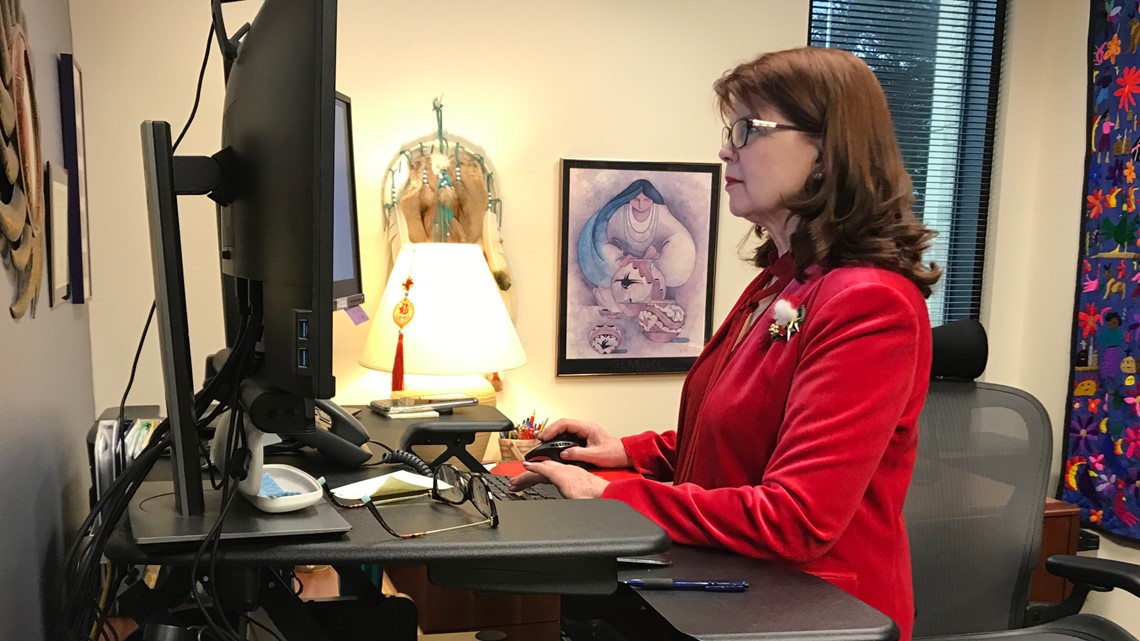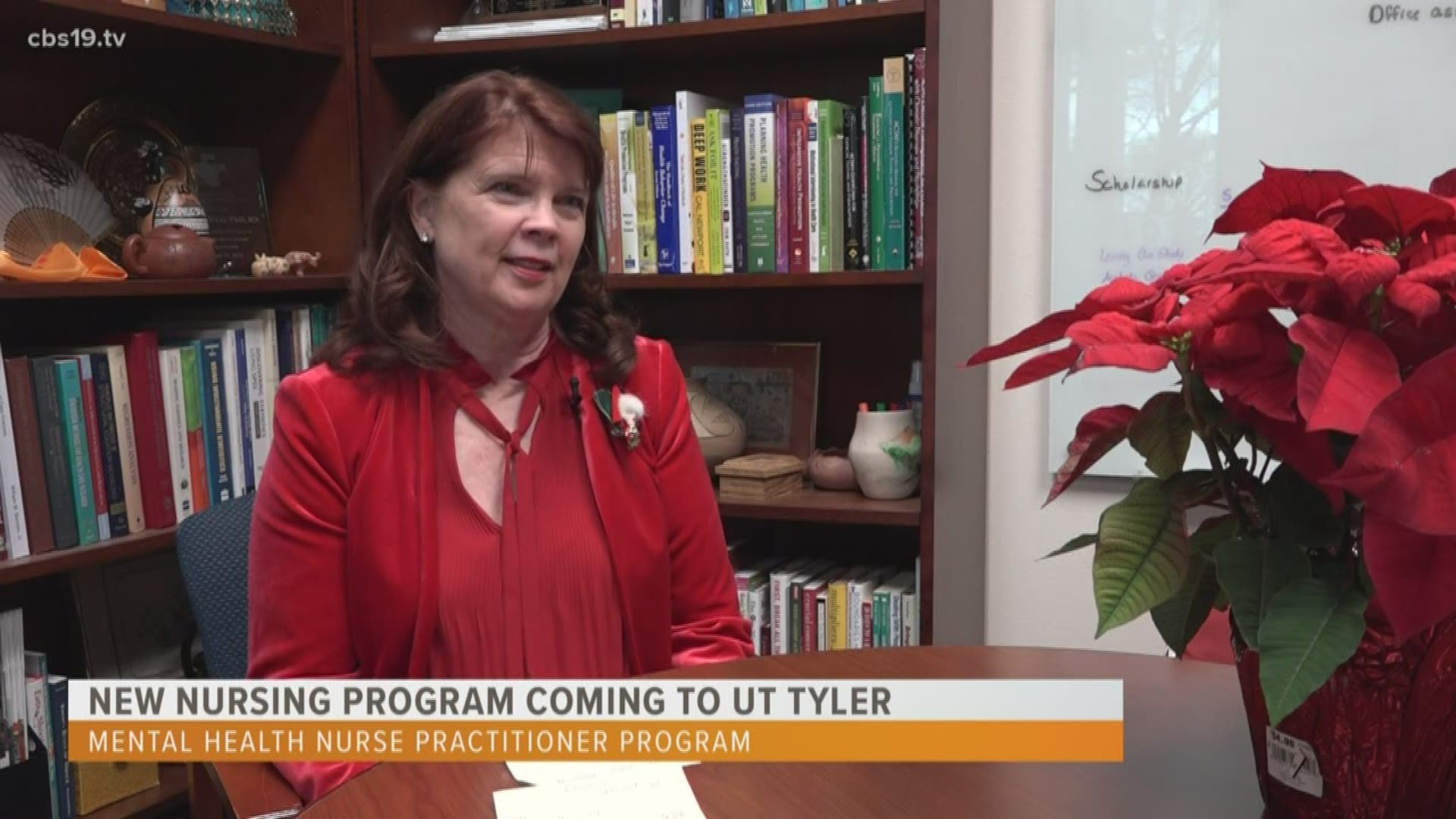TYLER, Texas — The mental health crisis across our nation continues as 2020 approaches, but the University of Texas at Tyler is addressing mental health challenges in the state of Texas.
UT Tyler is planning to launch a Mental Health Nurse Practitioner Program in 2020.
The Master of Science in Nursing–Psychiatric/Mental Health Nurse Practitioner (PMHNP) Program was recently approved by the Texas Higher Education Coordinating Board. Pending final approval by Southern Association of Colleges and School (SACS), UT Tyler may launch the program as early as summer 2020.
The program will admit anywhere from 10-12 students a year, offering a three-year, full-time online option or a four-year part-time option.
"It came from our community," Barbara Haas, Executive Director at UT Tyler School of Nursing said. "There is such a need. Our nurse practitioners were asking for it. They recognized in their practices they were seeing so many patients with mental health issues."


Haas says the curriculum will be online so people who live in rural areas have access to come back and get their degree.
“As has been well documented, forecasts are predicting significant increases in psychiatric/mental health care needs," said Dr. Yong “Tai” Wang, Dean of UT Tyler's College of Nursing and Health Sciences. "Rural areas will be even more at risk due to the mis-distribution of health providers who choose to live and work in urban locations. The Master of Science in Nursing-Psychiatric-Mental Health Nurse Practitioner degree will meet a crucial need in East Texas and the state.”
According to MentalHealthAmerica.org, Texas ranks last in the country when it comes to access to mental health care.
The nine measures that make up the Access Ranking include:
- Adults with AMI who Did Not Receive Treatment
- Adults with AMI Reporting Unmet Need
- Adults with AMI who are Uninsured
- Adults with Disability who Could Not See a Doctor Due to Costs
- Youth with MDE who Did Not Receive Mental Health Services
- Youth with Severe MDE who Received Some Consistent Treatment
- Children with Private Insurance that Did Not Cover Mental or Emotional Problems
- Students Identified with Emotional Disturbance for an Individualized Education Program
- Mental Health Workforce Availability

